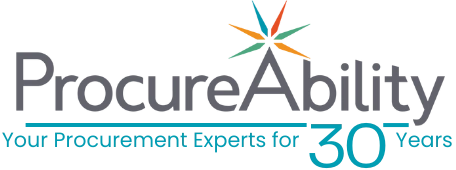Prioritizing DEI to Attract Top-Level Talent to Your Small Business

Read the full article in Small Business Currents and below:
In today’s highly competitive job market, small businesses must use every advantage to attract and retain top talent. Prioritizing diversity, equity, and inclusion (DEI) is one of the most effective strategies for success in a competitive market. According to a 2021 Glassdoor survey, 76% of employees consider a diverse workforce as a primary consideration when evaluating a potential employer. Building a culture that values and promotes DEI can attract a diverse and highly skill workforce, drive innovation, and achieve sustainable growth.
Below are actionable DEI and culture tips tailored for your small business that you can implement immediately to create a roadmap for ensuring your DEI efforts are meaningful and impactful.
Define Inclusion and Diversity for Your Company
Your DEI efforts should all contribute to a central goal or mission for your company. Having an unwavering focus will help to guide your efforts and decisions as you set out to bolster diversity and inclusion in your business. To get started, clearly articulate what inclusion and diversity mean for your organization. Create a vision statement that emphasizes the importance of an inclusive culture. Start by understanding the diverse perspectives within your organization. Encourage open conversations among team members and solicit feedback on creating a more inclusive workplace. Use surveys, suggestion boxes, or regular team meetings to gather ideas. This approach ensures that everyone feels heard and valued, fostering a sense of belonging.
Once your vision statement is set, implement clear and accessible policies that support your vision. Flexible working arrangements, diverse hiring practices, and anti-discrimination policies are great practices with which to start. Make sure these policies are communicated effectively to all employees to demonstrate your commitment to DEI, in both words and actions.
Identify High-quality, Free, and Low-cost Resources
Having an inclusive workforce involves starting employees off on the right foot. It’s imperative to incorporate DEI training into the onboarding process to set the tone for new hires, but it doesn’t have to be expensive. Platforms like Coursera, LinkedIn Learning, and YouTube offer free or low-cost courses on DEI that you can share with new hires when they join your team.
Beyond this, continued employee training and education are vital for cultivating an inclusive culture. Make DEI training a part of continuous professional development programs. This could be through quarterly workshops, lunch-and-learn sessions, or annual training requirements.
Beyond online courses, tap into your other resources. For instance, encourage employees who are passionate or knowledgeable about DEI to lead training sessions or discussion groups. Or investigate local resources; many organizations provide free DEI workshops and resources. You can partner with local nonprofits and community groups to offer training and support for your employees. This not only enhances DEI knowledge but also strengthens community ties.
Mentorship and Sponsorship
Transparency in career advancement opportunities is crucial for promoting equity within your organization. Develop and communicate clear pathways for career advancement. Ensure that all employees understand the opportunities available to them and the steps required to achieve their career goals. This transparency helps build trust and motivation among employees.
Establish mentorship programs where experienced employees guide and support newer or less experienced team members. This promotes knowledge sharing and provides underrepresented groups with opportunities to advance in their careers. Mentorship can be formal or informal, but it should be consistent and accessible.
Establish Employee Resource Groups (ERGs) to provide support and networking opportunities for underrepresented groups. Empower ERGs to have a voice in shaping the organization’s diversity and inclusion strategy.
Broaden your recruitment strategies
Attracting a diverse workforce starts with diversifying your recruitment efforts. Fostering a diverse talent pipeline requires a strategic and sustained effort to attract, develop, and retain individuals from various backgrounds. Below are key steps to achieve this:
Create inclusive job descriptions
- Ensure job descriptions are free of biased language, such as gender-based job titles, instead of councilman, use council member for example.
- Emphasize the skills and potential required for the role rather than rigid qualifications that may exclude diverse candidates.
Expand recruitment channels
- Post job openings on job boards and websites that cater to diverse communities (DiversityJobs, HBCU Connect).
- Partner with university job fairs and job boards particularly those with diverse student populations.
- Collaborate with community organizations and professional associations that focus on underrepresented groups, by establishing mutual goals and attending events, meetings, and conferences to understand their work better and to show your support.
Implement structured and inclusive hiring practices
- Train recruiters and hiring managers on unconscious bias and inclusive hiring practices.
- Use structured interviews with standardized questions to ensure consistency and fairness.
- Assemble diverse interview panels to reduce bias and promote different perspectives in the hiring process.
Offer internship and apprenticeship programs
- Create internship and apprenticeship programs specifically designed to attract and develop talent from underrepresented groups.
Offer competitive and equitable compensation
- Conduct regular pay equity analyses to ensure that all employees are compensated fairly.
Emphasize Diversity and Inclusivity in Company Communications and Events
Creating an inclusive work environment involves making tangible changes that reflect your commitment to DEI. Recognize and celebrate the diverse cultures, holidays, and traditions within your team. This can be as simple as acknowledging diverse cultural holidays in company communications or hosting small cultural events. Encourage diversity of thought as a valuable and critical part of your competitive differentiators in the marketplace.
Establish Specific, Measurable Goals for DEI
Measuring the impact of your DEI initiatives is crucial for continuous improvement. Develop simple metrics to track your efforts. This can include diversity in hiring, employee retention rates, and employee satisfaction scores related to inclusivity. Regularly review these metrics to identify areas of improvement and celebrate successes. Then, share your progress with your team. Regular updates on DEI initiatives, and their impact, demonstrate your commitment to your DEI mission and help build trust within your organization.
Lead by Example
Leadership plays a critical role in driving DEI initiatives. Strive to build a leadership team that reflects the diversity you aim to achieve within your organization. A diverse leadership team sets a powerful example and demonstrates your commitment to DEI. It also provides diverse perspectives that can drive better decision-making. Leaders should actively participate in DEI training and be visible advocates. Continuous learning and self-reflection are essential for leaders to effectively promote and support DEI initiatives.
Next Steps for Implementation
Implementing these DEI strategies might seem daunting, especially with limited resources, but here are quick steps to get started:
- Start small: Begin with one or two initiatives that are easy to implement and build from there. For example, start by revising your job descriptions to be more inclusive or organizing a small cultural celebration.
- Engage your team: Make DEI a team effort by involving employees in planning and implementing initiatives. This not only distributes the workload but also fosters a sense of ownership and commitment.
- Seek partnerships: Partner with local organizations, universities, and community groups that can provide resources and support for your DEI initiatives.
- Be patient and persistent: DEI is a continuous journey that requires time and persistence. Be patient with the process, celebrate small wins, and remain committed to your long-term goals.
Prioritizing DEI is imperative and a strategic advantage for small businesses. By fostering an inclusive culture, leveraging free resources, promoting equity, and diversifying your talent pipeline, you can create a thriving workplace that attracts top-level talent. Remember, even small changes can have a significant impact. Start with these actionable tips, and you’ll be well on your way to successfully building a diverse, equitable, and inclusive business.
Read Kim Neisen’s article in Small Business Currents.
About Kim Neisen
Kim Neisen, Director of Talent at ProcureAbility, is an industry expert with over 25 years of proven experience in talent acquisition, managed services, and procurement. Kim has an extensive history of driving innovation and enhancements that elevate operational effectiveness, employee engagement, and client satisfaction. Kim believes in leading by example and finding innovative ways to provide value to clients, candidates, and her peers.
Prior to working at ProcureAbility, Kim led the global, enterprise-wide Professional Services MSP under Global Spend Management at Aon Corporation, where she earned the Outstanding Buyer of the Year award from the Chicago Minority Supplier Development Council.
Kim graduated from Marquette University with a degree in Communications. She resides in the suburbs of Chicago and enjoys spending time with her husband, two boys, and numerous pets.
About ProcureAbility
ProcureAbility, a Jabil company, is the leading provider of procurement services, offering advisory, managed services, digital, staffing, and recruiting solutions. For more than 25 years, we have focused exclusively on helping clients elevate their procurement function.
We combine leading methodologies, analytics, market intelligence, and industry benchmarks with our uniquely flexible and customizable service delivery model. Global organizations of all sizes trust ProcureAbility to transform their procurement operations, drive growth, and reimagine what’s possible.
Let ProcureAbility help you reimagine your procurement capabilities.
Media contact:
Kathleen M. Pomento
Chief Marketing Officer | ProcureAbility
kpomento@procureability.com



